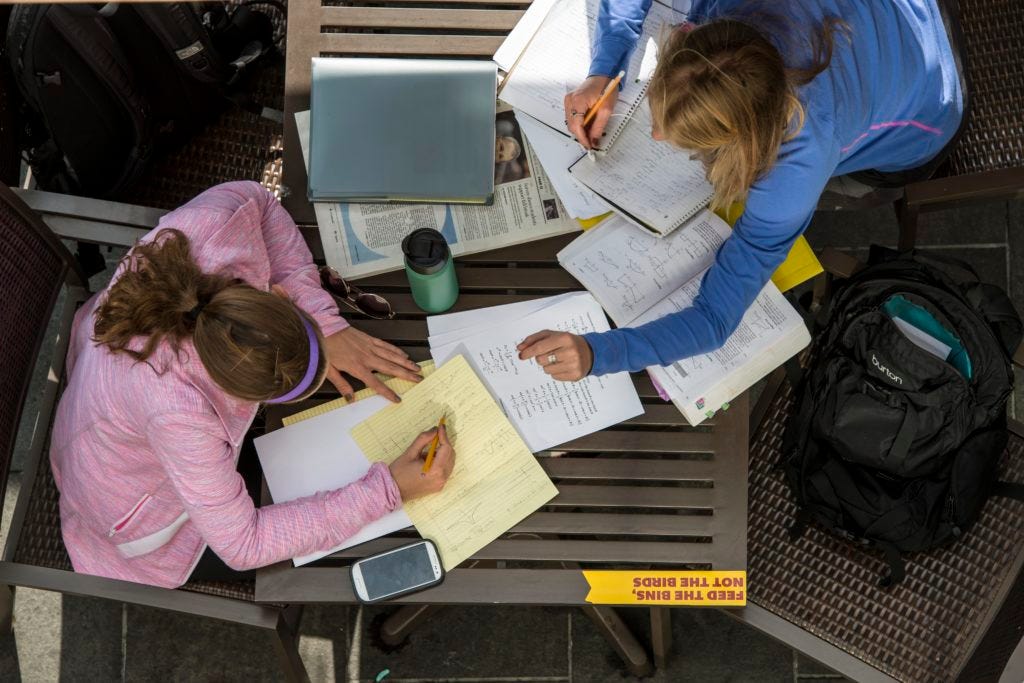Transfer Talk Tuesdays: Campus Resources
Transfer Talk Tuesdays are a series of personal blogs where current USC transfer students dive deeper into their real-life stories, perspectives, and experiences in transferring to USC. Note that each transfer application is unique and there are no guaranteed paths to transfer. For guidance on how to put together a competitive transfer application, please review our Transferring to USC brochure.
Jacqueline (Jackie) Lutz-Hibbard is a junior Biochemistry major from Pasadena, CA. In 2020, she transferred from a small liberal arts college on the east coast to USC. Jackie is on the pre-health track and is a research assistant for multiple studies at USC’s Health, Emotions, and Addiction Laboratory. She is involved in student clubs, ranging from book clubs to clubs which promote health education.
Transferring to USC felt quite daunting at first. I moved from a tiny college on the east coast smaller than my high school, to USC, which at first felt like a metropolis. As transfer students, it is easy to feel overwhelmed and lost socially as well as academically. However, once I arrived, it was like a new world had opened up to me – I was able to dive right into campus life. The good news is that USC offers numerous resources, honestly too many to list. USC truly supports its students in every aspect of life – job/career opportunities, academic support, and social and cultural support.
Academically, there are many programs set in place to support students. My favorite resource available here is Supplemental Instruction, or SI, which is an academic support program for difficult classes. SI is where students who have taken and passed specific classes run study sessions and offer academic support. These are great opportunities to review the material in a more casual setting as opposed to lectures, and I think is one of the main reasons why I passed my organic chemistry class! There are other tutoring options such as the Writing Center or the Math Center, which offer one-on-one feedback and support for classes or other projects.
Something I was anxious about when starting USC was how to get accommodations for my disability. At my previous college, I gave up on getting accommodations after the first semester because of how difficult the process was. However, at USC it couldn’t have been easier. Accommodations are run through the Office of Student Accessibility Services (OSAS), and the process (which is entirely online) took about 10 minutes on my end. Beyond testing and course accommodations, OSAS offers other personalized support to students with disabilities.
As someone on the pre-med track planning on applying to medical school, there are a lot of ins and outs that can make the process overwhelming. USC offers specific resources such as the Office of Pre-Health Advisement and the Office of Pre-Law Advisement, as well as assistance for continuing education and pre-graduate students; offering students advisement, support, opportunities, workshops, and mentorship. Exciting events and academic talks are offered constantly throughout the year, with the chance to see and speak with leaders in many prospective fields.
College is not just about academics and the transition can be hard for students, both physically and mentally. USC offers general medical care, as well as mental health programs including counseling, group or individual sessions, and also hosts wellness events.
USC has numerous cultural and support centers on campus that host events, offer support, and have student lounges for all students to study, relax, or hang out with friends in specially designated spaces. Student cultural centers include the Center for Black Cultural and Student Affairs (CBCSA), Asian Pacific American Student Services (APASS) and Latinx/Chicanx Center and Advocacy for Student Affairs (La CASA). Additional support centers are First Generation+ Success Center, the LGBTQ+ Resource Center and the Veterans Resource Center.
Finally, here are some fun, honorable mentions I wanted to highlight!
USC Special Collections is in my opinion one of the coolest and most unique resources available at USC. Special Collections at USC is a department of the library which holds and cares for rare and historical books, manuscripts, archives, and historical photographs. This resource is available to all students, and one of my favorite memories at USC was being able to hold and flip through the pages of a book of maps from the 1700s!
Another great USC resource is USC Visions and Voices, an arts initiative that hosts events to help all students regardless of major become engaged with the LA community and arts as a whole, which even includes taking students to plays and musicals in the LA area.
Starting at a new school is nerve wracking for everyone, and being a transfer student can add even more pressure. USC provides plenty of services and programs to help, transfer and first-years alike, successfully acclimate and welcome them into the Trojan family.
Written by: Jacqueline (Jackie) Lutz-Hibbard, 3rd year majoring in Biochemistry



